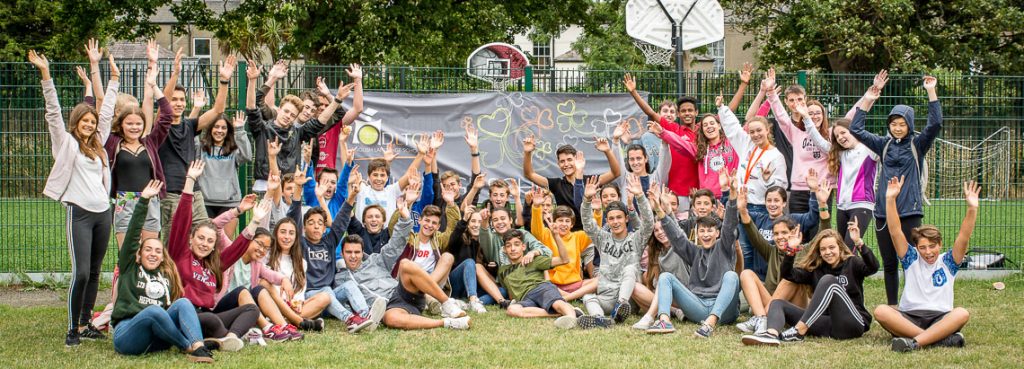Why Age Matters for Language Learning
Parents often askus at DLTC Language School: “When is the right age to send my child on a study holdiay in Ireland to learn English?” The truth is, children can benefit at almost any stage, but their experiences and outcomes will differ depending on their age.
Younger children are natural language sponges, while teenagers often gain more independence and confidence. Choosing the right age is about balancing language goals, emotional readiness, and cultural exposure.

Ages 8–12: Building Strong Foundations
Children in this age group learn languages quickly because their brains are highly receptive to new sounds and structures. A short study holiday in Ireland can give them a big boost in vocabulary, listening, and speaking skills.
At this stage:
- Kids learn English playfully through games and songs.
- They are less self-conscious about making mistakes.
- Staying with a host family helps them feel safe and cared for.
For parents, the key is ensuring that programs for this age group include close supervision and plenty of fun, hands-on activities.
Ages 13–15: Confidence and Communication
Teenagers in early adolescence benefit from study holidays because they are eager to socialize and make friends. This is a golden stage for building speaking confidence.
At this stage:
- Teens are more motivated to communicate with peers.
- They start using English in natural, everyday conversations.
- Cultural experiences broaden their worldviews.
Host families remain an excellent option, while some teenagers may also enjoy the independence of a student residence.
Ages 16–18: Preparing for the Future
Older teens often join study holidays abroad with specific goals in mind—such as preparing for exams, future university study, or even career prospects.
At this stage:
- Teens focus on academic English and exam preparation.
- They gain independence and responsibility.
- Networking with international peers is a huge plus.
Student residences often suit this age group well, providing independence while still offering structured learning and support.
How to Decide What’s Best for Your Child
There’s no single “perfect” age for every child—it depends on their personality, maturity, and goals.
Ask yourself:
- Is my child ready to be away from home?
- Do they adapt well to new environments?
- Am I looking for language improvement, cultural exposure, or both?
Younger children benefit from playful immersion, while teens thrive on independence and social interaction. Both experiences can be equally rewarding when matched to your child’s needs.
Final Thoughts
The best age to send children abroad to learn English depends on your family’s goals and your child’s readiness. Whether they are 10 and eager to explore, 14 and ready to socialize, or 17 and preparing for their future, a study holiday in Ireland offers invaluable lessons in language, culture, and personal growth.
DLTC Language School provides these summer study holidays in Ireland for students from all over the world aged between 11-17 years – a trusted program that provides the right balance of safety, immersion, and fun.
